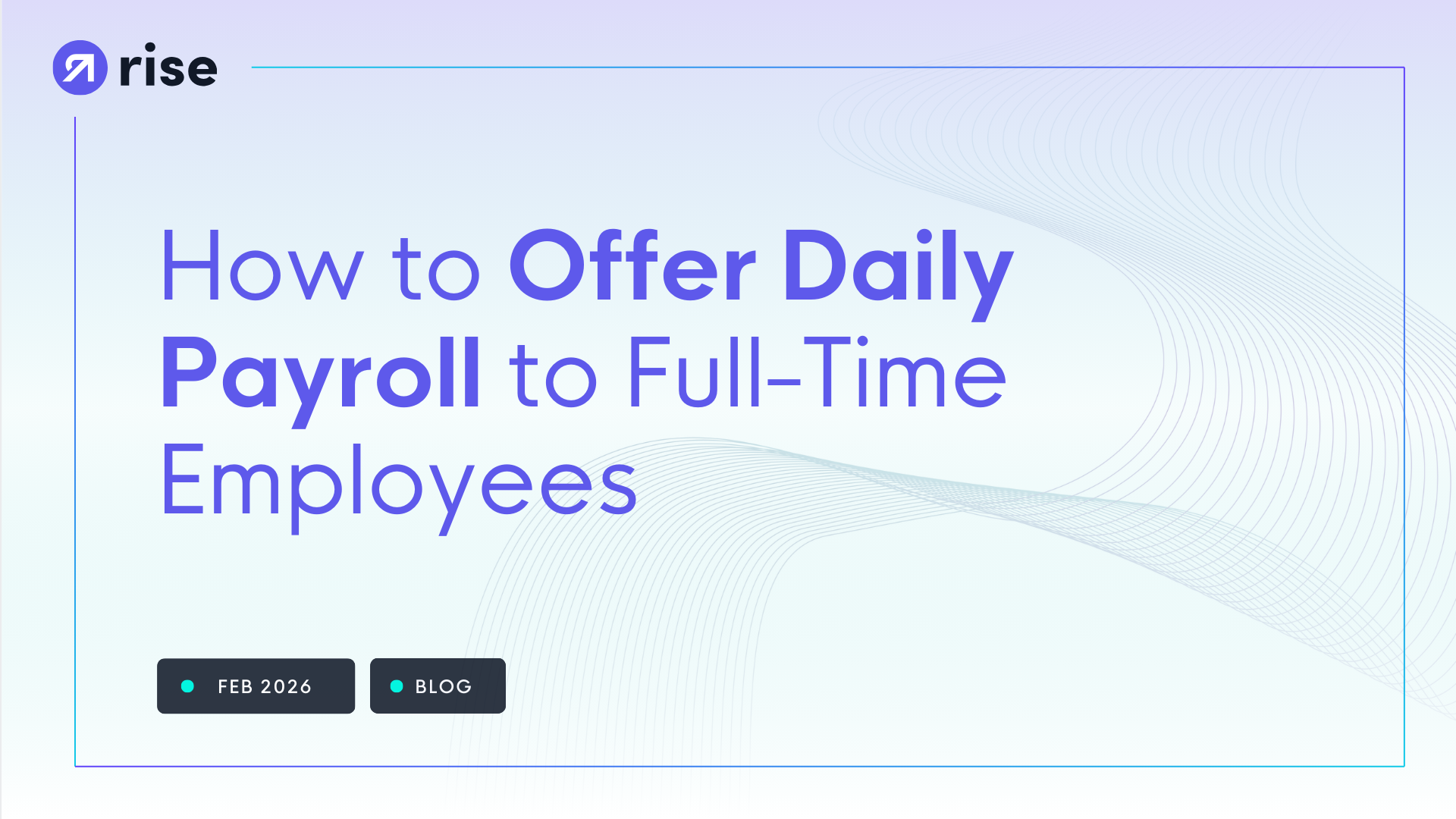Over the past three years, web3’s user base has experienced an unprecedented rate of growth. Web3 gaming grew by more than 2,000% with the number of gamers now topping 73 million, and 23% of millennials in the US reported owning NFTs. Crypto ownership has remained on a sharp incline and in response to these radical shifts, international businesses have had no choice but to adapt to web3 or face obsolescence.
One of the main demands from the global workforce has been the option to receive a paycheck (or portion of a paycheck) in crypto and stablecoins. This has resulted in a wave of forward-thinking companies onboarding their payroll with hybrid crypto and fiat payroll solutions.
As these borderless and highly-efficient integrations gain popular interest, the follow-up question is determining how to navigate this new landscape of global compliance.
International Hiring in Web3
The ethos of decentralization has officially entered into the mainstream. Everything from finance to gaming to job marketplaces now has its decentralized counterpart, stepping in to offer a more user-centric and democratized experience of the traditional product.
Web3’s influence on the global workforce has been especially pronounced. The ability to seek high-quality work opportunities with close-to-zero overhead fees and receive efficient, cost-effective, borderless compensation has convinced many of the merits of blockchain-based workforce management tools. The mass exodus of talent toward decentralized payment and hiring platforms has catalyzed companies’ adoption of these same technologies.
As the workforce grows increasingly international, these tools not only allow for expanded collaboration but reduce compliance challenges. Previously, managing and compensating global teams across many different countries was prohibitively complex and expensive; ensuring adherence to all tax and employment regulations constituted a full-time job, which many smaller companies did not have capacity to support.
In contrast to the workforce management infrastructure of web2, web3 payroll and hiring platforms provide options for automating, scaling, and streamlining the management of global teams by leveraging blockchain technology. From automated KYC checks and blockchain-based identity verification systems to ensuring international compliance, using web3 tools results in cost and time savings.
Navigating KYC in International Hiring
KYC, or Know Your Customer, is an important process for customer or client identity verification. Its primary focus is verifying and understanding the identity, financial activities, and risk profile of a customer. KYC plays a pivotal role in mitigating financial crimes, such as money laundering and fraud by ensuring that financial entities and other regulated entities have a clear understanding of their customers’ backgrounds and intentions.
In the case of web3 companies, many of which collaborate with a roster of dispersed international contractors and employees, diligence with KYC is crucial for avoiding costly compliance missteps. Since most hiring in the web3 ecosystem is done over the internet with limited in-person interactions, KYC helps to ensure the authenticity of potential hires, confirming their identity matches their claims. A complication that can arise for web3-native organizations, such as DAOs is figuring out how to stay in compliance and run KYC checks while ensuring anonymity for contributors.
The option for contributors to remain anonymous is an important feature of working for a DAO. For this reason, systems must be established to keep anonymity intact without risking a breach in regulatory standards. While few options are presently available, a scalable and secure means of doing this is by onboarding with a web3-friendly payroll and compliance provider that has the infrastructure for issuing anonymous KYC checks.
Challenges of Payroll and Compliance in the Web3 World
Global polls show interest in crypto continues to rise, with ownership in many countries more than doubling in the last three years and in turn, causing more of the workforce to want to receive full or partial salaries in crypto. In response to this demand, for companies that want to stand out in a competitive market, offering compensation packages that include crypto is a necessity.
While compensation in crypto brings elevated levels of ease to many elements of the payroll process, it also presents certain difficulties.
The regulatory landscape of crypto is in constant flux. While many countries, such as Argentina, were previously considered crypto havens and had little to no restrictions or taxation, in recent years new laws have been put in place exercising stricter governance over digital assets. The ever-evolving legality and regulation of crypto globally can make compensation a challenge, especially for companies managing a wide network of global talent. While it is a perfectly legal option to offer remuneration in crypto to a contractor in the United States, the same payout would be illegal in China.
For DAOs and other web3-native companies that hold their treasuries in crypto, and typically remunerate contributors in their native token, solutions must be found for circumventing these restrictions in order to hire based on talent rather than geographical location. In these circumstances, the optimal choice is a payroll provider that allows for payroll to be funded in crypto from a digital wallet and automatically routed into fiat currency. An example of this can look like payroll funded in USDC, contractor payments sent in USD, and contractors having the flexibility to withdraw their funds in either fiat currency or crypto.
By issuing all payments in USD, any compliance concerns that may arise with crypto compensation are avoided. While taxes can be reported in fiat currency, contractors have the choice of converting their wages instantly into crypto, and companies are not limited to holding their treasuries in a bank account.
The Complexity of Web3 Payments
For many web3 companies, there is an emphasis on keeping all transactions, including payroll, on-chain. This ensures that a company’s guiding principles are not compromised by going through central intermediaries in lieu of decentralized systems. On the whole, this ensures that all transactions are scalable, streamlined, and cost-efficient.
When it comes to issuing payroll, however, if this is done in-house, depending on the volume of the payments, reporting taxes can quickly become a mammoth task. Executing payments to a multitude of contractors across the globe in crypto through decentralized networks can prove a nightmare for reporting. Since in most jurisdictions payments must be reported in fiat currency at the time of their issuance, having an infallible system for keeping track of every on-chain payment issued and its corresponding fiat value is imperative.
Alongside the potential reporting hurdles that can arise, there are certain associated risks with sending payments in crypto. In a study conducted by Blockchain Security Alliance investigating global web3 security and crypto regulatory compliance, it was found that in 2022 alone, total losses from security attacks topped $3.4 billion. Cross-chain bridges represented the most attacked projects in the DeFi ecosystem, accounting for $1.89 billion of the lost funds.
Ensuring AML in Web3 Payments
Anti money laundering (AML) refers to a framework of regulations and practices that aims to prevent the illicit conversion of illegally-obtained funds into legitimate income. Its paramount significance lies in safeguarding global financial systems against money laundering, terrorism financing, and other financial crimes. Through the enforcement of stringent due diligence, transaction monitoring, and reporting measures, AML ensures the detection and prevention of suspicious financial activities.
In the world of web3, the conversation around AML has reached a crescendo due to the high rates of money laundered in crypto through centralized and decentralized exchanges. Between 2017 and 2021, cybercriminals laundered $33 billion worth of crypto.
Similar to the issues with KYC checks for web3-native organizations, AML enforcement using web2 standards brings questions of how to avoid illicit activity without exposing web3 user’s personal information.
Since most countries have implemented AML standards and regulations, the majority of companies can anticipate compliance requirements. For web3 companies and DAOs that want to ensure that their operations are fully legal and compliant, a balance must be struck between abiding by AML standards without sacrificing principles of anonymity. Working with a hiring platform that is web3-compatible is a great way to achieve this.
As was discussed with regards to KYC onboarding, a platform designed around the needs of web3-native entities makes it possible to ensure compliance without exposing a contractor or contributor’s personal data. This is typically achieved by verifying a worker’s information via their on-chain identity; those managing DAO payroll do not have access to more than a wallet address while a third-party web3-friendly platform ensures that a contributor is who they claim to be.
Prioritizing Compliance in Web3
In 2023, web3 is no longer the wild west that it was ten or even two years ago. The new levels of regulatory enforcement have taken many long-standing web3 operators by surprise. Tools for ensuring compliance while staying true to web3’s values of anonymity and decentralization are gaining momentum as the risk of a compliance misstep takes on new gravity.
This takes on further relevancy as blockchain technology and crypto have entered into the mainstream and are no longer viewed as niche technologies.
For many builders in web3, there is a driving desire to build an ecosystem that is not viewed as ripe territory for money laundering and illegal activity. Companies want their products to be seen as reliable and secure and users seek that same level of security from their web3 experience.
Just as important, web3 businesses must ensure that their global workforce and community members are kept safe, while any payments sent to them on or off-chain are made by meeting full regulatory requirements, locally and globally.
Taking a proactive stance with respect to compliance is critical for the health and success of a project. From ensuring that a project is not crushed by a noncompliance blunder to gaining public support by following all regulatory standards, the importance of prioritizing compliance cannot be overstated. A commitment to choosing the path of adherence to regulatory standards builds a safer and more sustainable web3 ecosystem for all of its users, employees, and contributors.

















